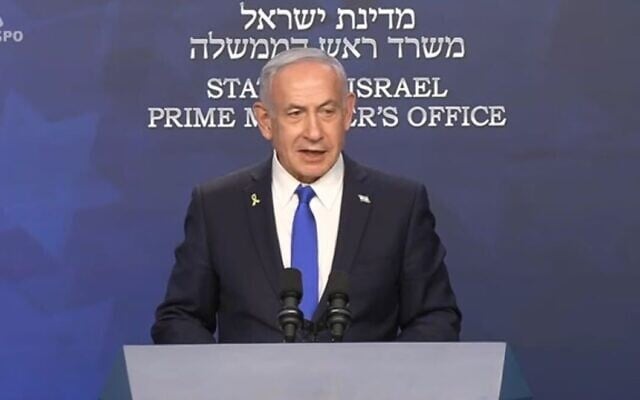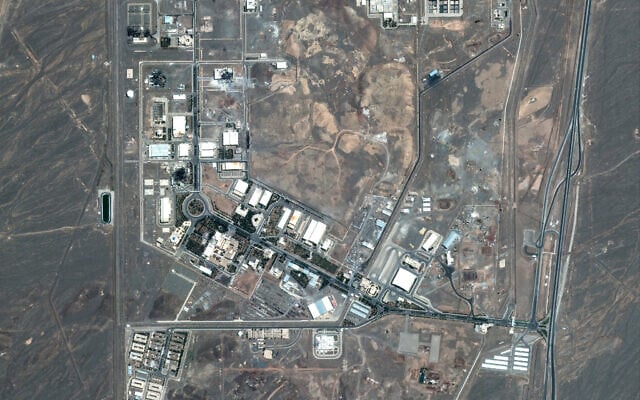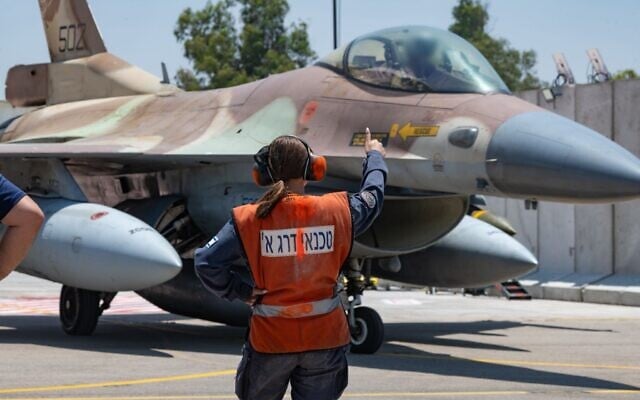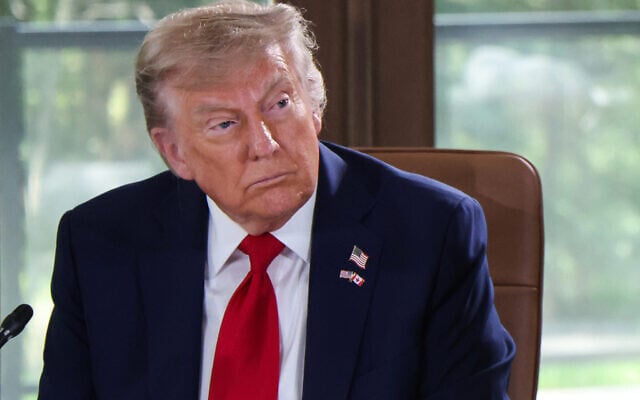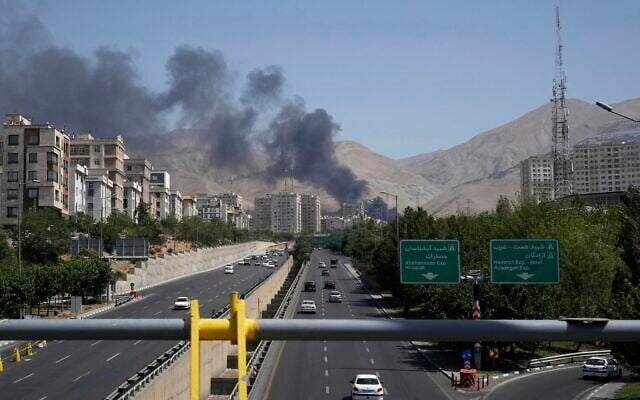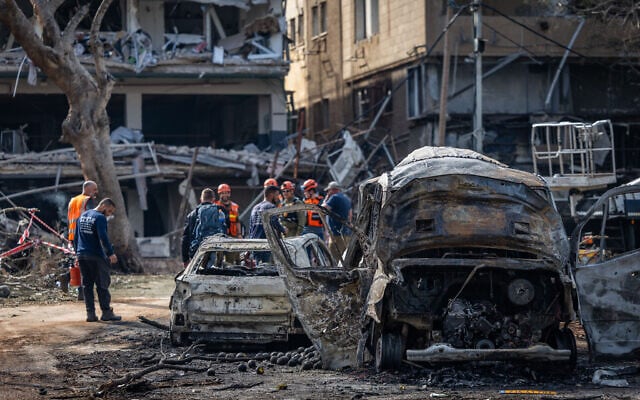


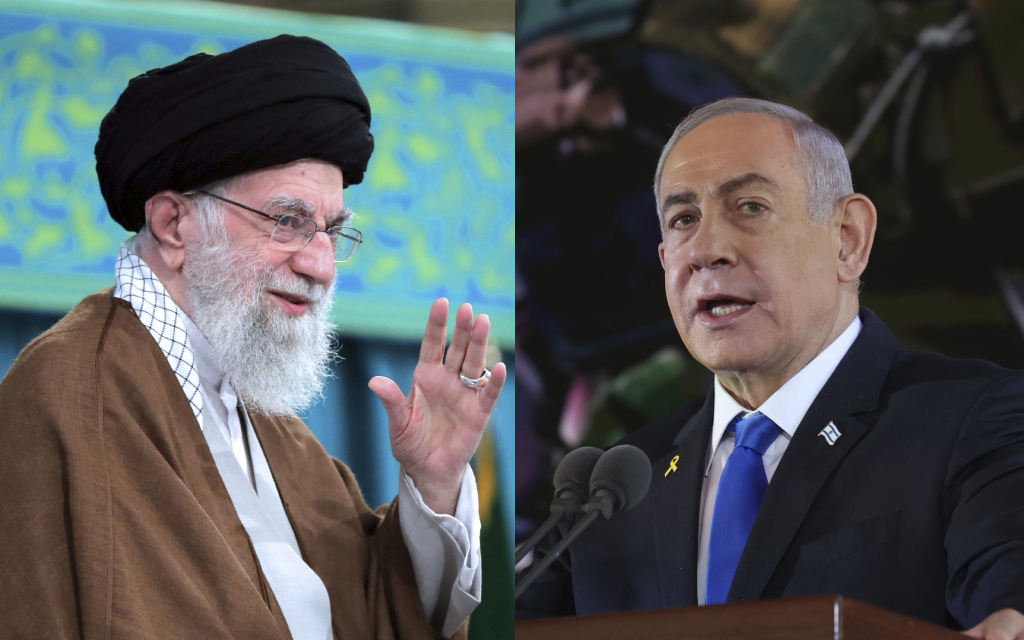
Prime Minister Benjamin Netanyahu on Monday did not rule out plans to target Iranian Supreme Leader Ali Khamenei. Instead, he suggested that it would be a surefire way to “end the conflict” with the Islamic Republic.
Asked during an ABC News interview about reports that US President Donald Trump vetoed an Israeli plan to kill the Iranian supreme leader out of concern that it would escalate the fighting between the two countries further, Netanyahu was dismissive.
“It’s not going to escalate the conflict, it’s going to end the conflict,” he said.
“We’ve had half a century of conflict spread by this regime that terrorizes everyone in the Middle East,” said the premier. “The ‘forever war’ is what Iran wants, and they’re bringing us to the brink of nuclear war.”
“In fact, what Israel is doing is preventing this, bringing an end to this aggression, and we can only do so by standing up to the forces of evil,” he added.
Netanyahu did not reveal whether or not Israel would target Khamenei, saying only: “We’re doing what we need to do.”
Americans should be deeply concerned both about Tehran’s efforts to acquire a nuclear weapon and its increasingly muscular ballistic missile capability, Netanyahu argued.
“Today it’s Tel Aviv, tomorrow it’s New York,” Netanyahu said, in what appeared to be an appeal to some of the country’s more isolationist policymakers.
“I understand ‘America First,'” he said. “I don’t understand ‘America dead.'”
“We’re not just fighting our enemy. We’re fighting your enemy. For God’s sake, they chant, ‘Death to Israel, death to America.’ We’re simply on their way. And this could reach America soon.”
The ABC News interview was the second time in as many days that Netanyahu sat for a lengthy American media interview. It was held shortly before the release of a prerecorded online press conference in Israel.
At the Hebrew press conference later on Monday, the premier laid out Israel’s achievements thus far in the campaign against Iran’s nuclear and missile programs, which began in the early hours of Friday.
He said that Israel has so far killed 10 senior nuclear scientists. “Our arm is still outstretched,” he vowed. “There are a few; we will get to them.”
He said Israel has delivered “an extremely severe strike to the Natanz uranium enrichment site,” and has “destroyed factories for creating centrifuges.”
“We are continuing to destroy nuclear targets systematically,” he said.
Netanyahu then moved to Iran’s ballistic missiles — of which some 350 have been fired at Israel since Friday.
“We struck and continue to strike production factories, one after the next,” he said, reading from a list in his hand. He added that Israel has taken out “hundreds of ballistic missiles,” and was destroying launchers “one by one.”
He said Israel had “eliminated Iran’s security leadership, including three chiefs of staff,” and again vowed: “We are eliminating them one by one.”
The premier said Israel was in control of Tehran’s skies, and had “paved an air highway to Tehran.
Israel “simply eliminated” the air defense network in western Iran and other places in the country, boasted the premier.
Half of Iran’s UAVs were destroyed by Israel, which also struck their key radar systems, Netanyahu said.
Israel hit regime sites, headquarters, the government TV network, “and other sites that you will hear about soon,” he added.
“We are evacuating the population,” he emphasized, “and the population is leaving.
“We are on the way to victory,” he promised. “Iran understands this as well.”
Listing the goals of Israel’s offensive in Iran, Netanyahu specified that it is insisting on “three central results: The destruction of the nuclear program, the destruction of the production capacity of ballistic missiles, and the destruction of the axis of terror.”
Destroying Iran’s proxy network was not mentioned by Netanyahu when he first addressed the public after Israel launched the opening salvo of the conflict last week. Then, he said the goals were only to eliminate Iran’s nuclear and ballistic missile programs.
National Security Adviser Tzachi Hanegbi said Saturday that the goals of the operation, as approved by the cabinet, against Iran are four-fold: striking Iran’s nuclear program, striking its ballistic missile capabilities; attacking its capacity to destroy Israel via a ground attack; and creating the conditions for the long-term thwarting of Iran’s nuclear program via diplomatic means.
As for the three goals listed by Netanyahu on Monday, the premier said, “We will do what is necessary to achieve [all of them]. And we are coordinated with the United States.”
He acknowledged that the regime in Iran could fall as a consequence of these results, adding that Israel is changing the face of the Middle East.
Taking questions from the press, Netanyahu said he was “not surprised” that Iran was supposedly calling for negotiations to end Israel’s attacks, because “they want to go back to producing their weapons of death.”
One way or another, Iran’s nuclear and ballistic weapons programs will be destroyed, but they are welcome to do so themselves, Netanyahu noted.
But even as the Iranians were negotiating with the US, the “dictatorial” Khamenei “was tweeting that Israel will be destroyed,” he said.
Israel will not be fooled about Iran’s intentions, the premier asserted. What matters are “results.”
Asked about the apparent lack of support from Israel’s allies in thwarting Iran’s missile attacks, Netanyahu responded, “There is good readiness” to help.
He also maintained that there is support behind the scenes from other allies, including widespread support from the American public.
Netanyahu also revealed that he has spoken to US President Donald Trump almost every day since the conflict began. He said Trump “will decide on what is good for America [but that] we will accept any assistance.”
He noted that Trump “shares the goal that Iran will not have nuclear weapons, will not have an enrichment capacity — because if there’s an enrichment capacity, there’s a nuclear capacity — and this goal will be achieved.”
Netanyahu pointed out that the Iranian regime has tried to assassinate both Trump and himself and that the Islamic Republic has killed thousands of US troops around the globe.
He claimed that Iran intended to give nuclear weapons to the Houthi rebels in Yemen, along with other proxies, in order to threaten the entire world.
He also asserted that he won’t let the Islamic Republic destroy 3,500 years of Jewish history. “What will be destroyed is their story.”
Asked whether Israel can destroy the Iranian nuclear program without attacking the Fordo facility and without more active support from the US, he repeated that Israel is “committed to removing” the Iranian nuclear threat, which he described as “an existential” danger. “We are doing it and we won’t give up on it.”
As for how far Israel managed to delay Iran’s progress toward a nuclear weapon, Netanyahu said, “We are setting them back a great deal of time… and we’re not stopping.”
He likened the Iranian nuclear program to a “cancer,” asserting that “when you have a cancer that threatens to kill you, you cut it out. You also do other treatments and it could be that it returns one day… We are truly carrying out root canal treatment.” Iranian leaders have similarly described Israel in this way.
The situation “is at 12 o’clock. There is no 13 o’clock,” Netanyahu warned, adding that Israel is doing “what a people that seeks to live has to do.”
Asked about the justification for hitting Iran’s state broadcasting building earlier on Monday, and whether that exposes Israeli media to potential retaliation, Netanyahu said Israel is “acting against regime targets…. It’s not a broadcast channel. It’s not a news channel. It’s a tool of a totalitarian regime that hides the true reality from the citizens of Tehran and Iran.”
It’s constructive to block this propaganda channel and to enable Iranians to get true information, he says.
The Iranian leadership underestimates Israel’s resilience, and it tries to hide how weak it is from the Iranian public. “They’re very scared of us, but you know what they’re more scared of? The Iranian people.”
Making a point to connect the Iran conflict to Gaza, Netanyahu argued that Israel’s offensive against Iran could assist in the still-stuck negotiations to release the remaining hostages held by Hamas.
He said Israel is waiting for Hamas’s response to Israel’s current stance on the hostages, revealing that he had recently given a “wider mandate” to Israel’s negotiators, without elaborating.
“Obviously, if Iran falls — or at least this threat falls — I think it changes the world, but it certainly changes the situation with the [Iranian] proxies in our neighborhood,” he said in an apparent reference to Hamas.

